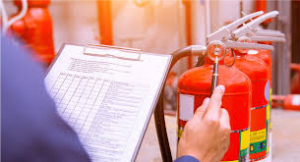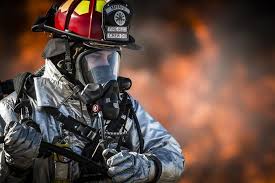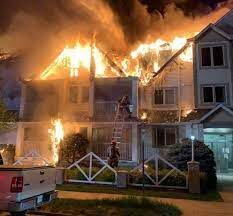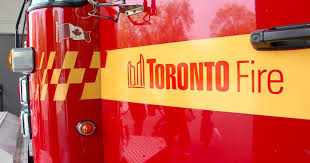 September 2024
September 2024
One hallmark of condominium living is those monthly fire alarm and sprinkler tests which include an alarm that runs for the duration of these tests that is so infuriating.
The condominium corporation is the owner of the building and responsible for ensuring living areas, common spaces, underground parking and storage areas are in compliance with the Ontario Fire Code.
Every condominium in Ontario is required by the Ontario Fire Code to have a building inspection every 30 days. Inspections include checking fire rated doors, exit signs and fire separations on all levels including tenant storage locker areas. Inspections are typically assigned to building security or the superintendent. These inspections are separate from what is undertaken each month by the fire alarm and sprinkler contractor.
Resident Storage Lockers
Resident storage lockers are of particular concern. These are to be located in fire rated rooms that are typically at basement level. Residents have been found to store flammable items that include paint, propane tanks, food, medical oxygen tanks, waste oil, acetylene tanks and other contractor supplies, and gasoline, all of which are flammable and a danger. Safety-oriented communities will prohibit the storage of these items through their condo rules and incorporate these spaces into their inspection program.
During a monthly fire inspection walk through, it is important to include the locker and storage areas. Residents that use the area or their private locker to store garbage and unwanted items should be identified and dealt with.
Annual Communication
Consider an annual communication reminding residents to ensure their lockers are safe by reminding them of items not permitted. This would be a good time to remind them not to store food or other perishable items, and to keep items elevated at least four inches to avoid damage by rodents or flooding.
Underground Parking Garages in Townhouse Communities
Underground parking garages in townhouse communities present unique challenges. Residents often have direct access from their unit to the parking garage, and may be using the wall adjoining their unit in an improper manner. They may be storing BBQ’s, propane or other fuel cans, furniture, camping equipment, workbenches or toolboxes along this wall. Electrical outlets may be modified or extension cords run from them. Shelving may have been installed. These are all modifications made by the resident or unit owner, without permission and in contravention of the Ontario Fire Code.
The Ontario Fire Code has provisions to ensure that a fire occurring in a fire-separated room is more likely to be addressed before spreading throughout a building. Within the room, building management can take measures to ensure individual residents don’t store items that pose a risk to others.







